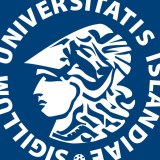
On Monday, 18-19 March 2013 a high-level seminar hosted by the Institute for International Affairs and Centre for Arctic Policy Studies, University of Iceland (IIA/CAPS), and the Stockholm International Peace Research Institute (SIPRI) – in cooperation with the Swedish and Icelandic Ministries for Foreign Affairs. The event will be held at Radisson Blu Hotel Saga.
Keynote addresses by HE Mr. Carl Bildt, Minister for Foreign Affairs of Sweden and
HE Mr. Össur Skarphéðinsson, Minister for Foreign Affairs of Iceland
The Arctic, where ice has so far been a barrier, could become an open bridge in the future between widely separated and different nations. Ice melting at sea and on land will open up new trans-Arctic transport routes and give access to new mineral and fishery resources, even while it disrupts traditional habitats.
Whether fast or slow, these changes will affect first and foremost the countries around the North Pole who already cooperate through the Arctic Council. Yet the Arctic is also part of the wider world. New transport routes and tourism will attract both suppliers and customers from outside the region. Possible new Arctic energy production will affect the global energy balance and be affected by it. A badly managed Arctic would be a legitimate concern for the whole international community.

The Trans-Arctic conference will bring together experts and policy-formers from all the large and small nations most interested in Arctic developments. It will not look for national differences but for common agendas. It will ask if current governance methods are coping with the growing agenda or if not, what more could be done to ease cooperation at the state, business, and popular levels. It will end with special emphasis on the roles of the small Nordic states, and of Iceland itself - the only sovereign nation to lie entirely within the Arctic.
Further information and a conference programme is available on the website of the Institute of International Affairs at: www.ams.hi.is
The conference is open to all but we kindly ask you to register your attendance for planning purposes by sending us an email at . no later than March 15.
Sources
Institute of International Affairs
Centre for Small State Studies
University of Iceland